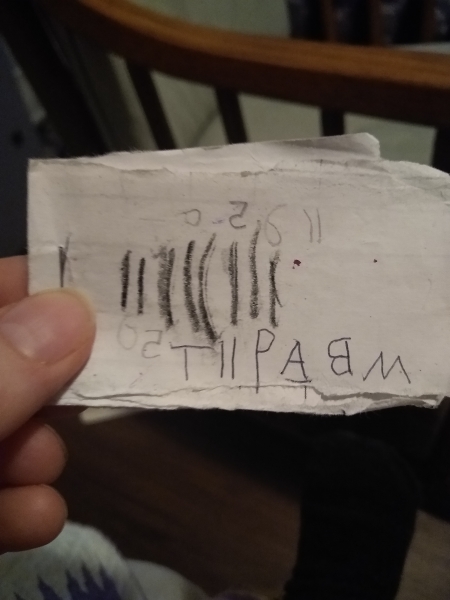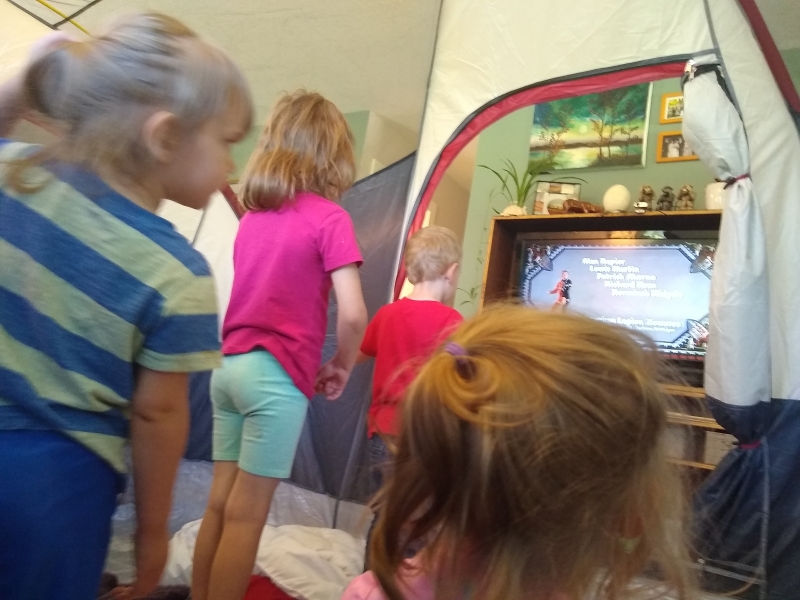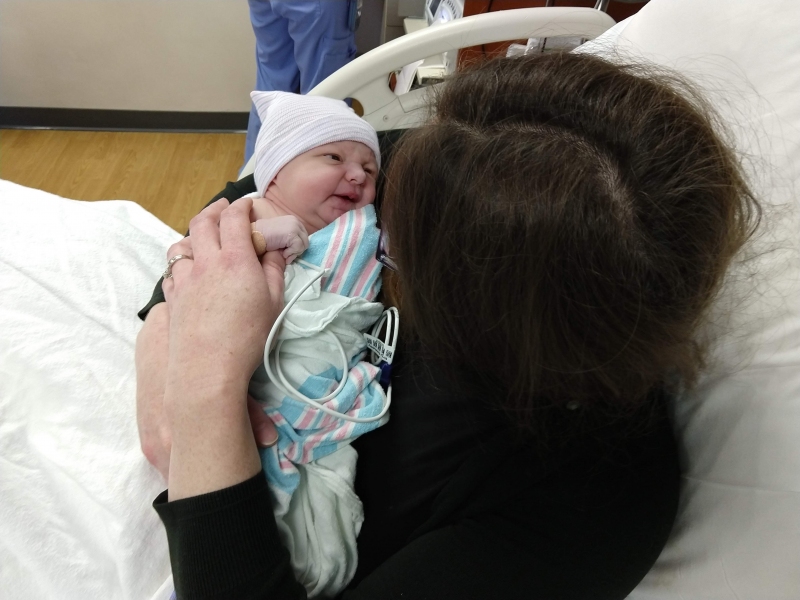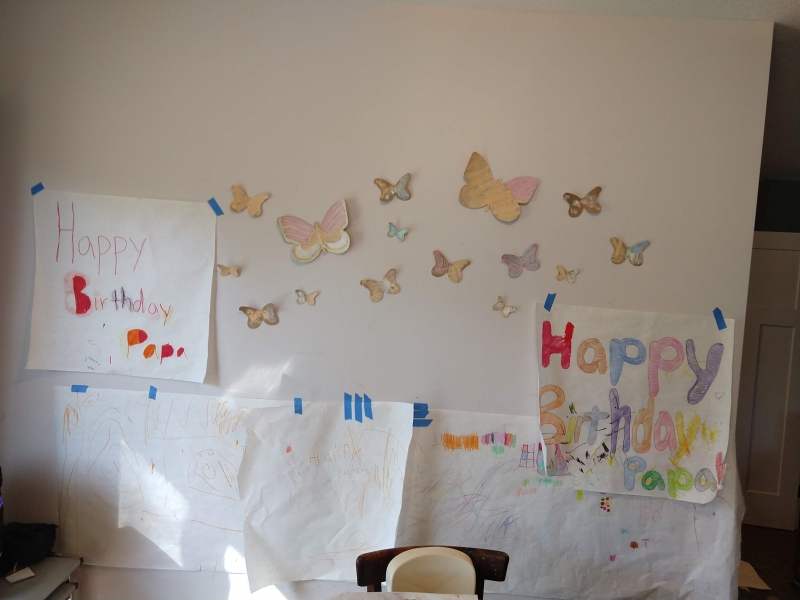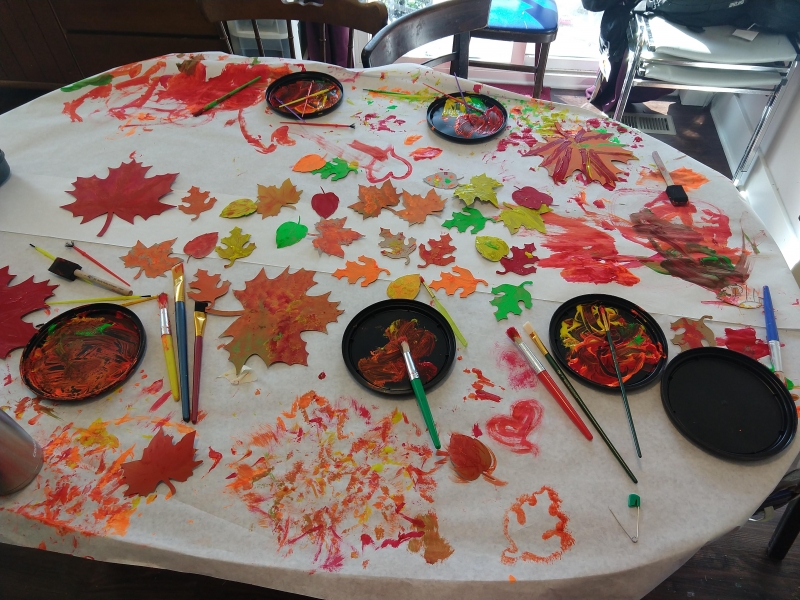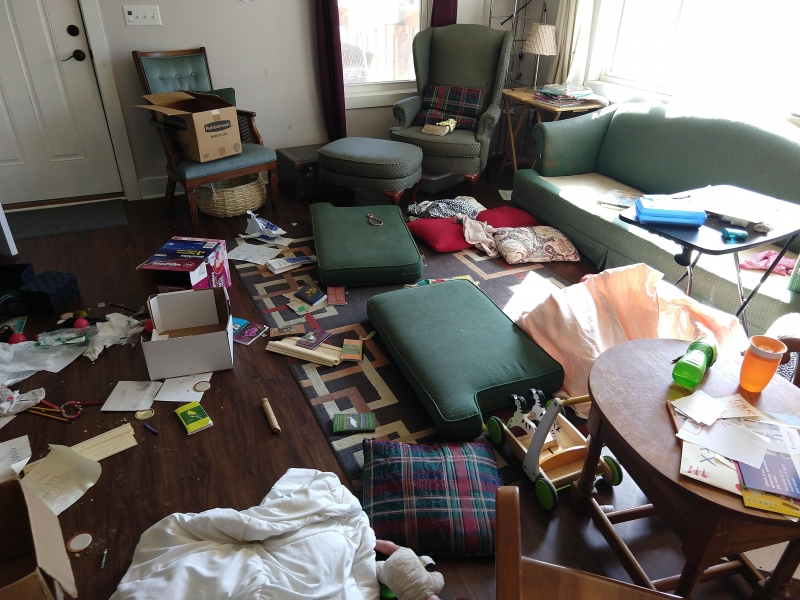As much as I want to do everything all at once, if there’s one thing I’ve learned about myself it’s to not overdo it by trying to overhaul everything. So while I would have loved to have started off homeschool with a bang, I chose instead to start it slowly…very, very slowly.
Tirzah Mae is kindergarten-age this year and she’s been eager to get started. I was eager too, but didn’t want to start something I couldn’t sustain, so I kept telling her we’d start once we got settled in with Shiloh.
Of course, “settled in” is a nebulous concept and things change so rapidly in the early weeks that it’s all you can do to keep up… but when Shiloh was a couple days shy of a month old we were ready to start Phase 1.
Phase 1 was the resumption of Reading Time.
We’ve been doing reading time after breakfast for about a year now (if I remember right.) The kids like to linger over their breakfast and I’m frequently impatient to get started on my to-do list. Sitting waiting for them to finish up was excruciating – until I realized that was the perfect time to do read-alouds.
In the past, Reading Time has been whatever picture books I’ve got out of the library, but now that this is officially school, I’m being a bit more systematic. I’m not super convinced that kindergarten requires a whole lot of “subjects”, but I did want to at least introduce the concept of subjects. We’ve done this using the Core Knowledge book What Your Kindergartener Needs to Know. Each morning, we read a nursery rhyme or poem and then we get into our subject. We rotate through literature (mostly folktales), history and geography, and science topics from the kindergarten book, reading one story or section per day. After our “subject work”, we move on to the next picture book in line in our goal to read every book in the library (right now we’re reading lots of Tomie dePaola and Anna Dewdney, two very delightful authors!) Finally, we close out our reading time with the next chapter in our chapter book. So far in the 2020-2021 school year, we’ve read Mr. Popper’s Penguins by Florence and Richard Atwood and The Boxcar Children by Gertrude Chandler Warner. We’ll start Betsy MacDonald’s Mrs. Piggle-wiggle tomorrow.
The second phase in our homeschool calendar was the resumption of Singing Time near the end of June. I’ve been doing some variation on Singing Time since Tirzah Mae was two, but it seems I tweak it a bit every year. This year, I’ve got folders for “current work”, “recent review”, and “long term review”. Every day, we sing every song in the “current work” folder (one “Sunday school” song, one “ordinary” children’s song, and one memory verse). We sing whatever song and recite whatever verse is at the front of their respective “recent review” folders. And we sing whatever song and recite whatever verse is at the front of the “long term review” folders. Once a week, I add a new song or verse to the “current work” folder, moving the older song from that category back to the “recent review” folder and the oldest song in the “recent review” folder back to the “long term review”. This way, we sing a song or recite a verse daily for three weeks, then every other day for three weeks, and periodically review thereafter. All told, we sing four songs and recite three verses daily.
The third phase of our school program is Activity Time.
Activity Time rotates through six different themes: Visual Arts, Cooking, Gross Motor Activities (P.E.), Musical Arts, Sewing, and Sensory Activities. I have lists of potential activities in each of these categories, but I try to be pretty flexible with these. So when we read about how Henry won the free-for-all in The Boxcar Children, we ran footraces in the yard, taking turns yelling “Get Ready, Get Set, Go!” and then racing full-tilt from fence to fence. I had an Introduction to Instruments and Benjamin Britten’s “Young Person’s Guide to the Orchestra” out of the library one day so we listened to it while playing with playdough (a double-whammy of musical arts and sensory activities). For cooking, I have a list of skills I want Tirzah Mae to develop over the course of her kindergarten year, and I have a spreadsheet set up where I note each date that we work on a skill and the date that I consider her to have mastered it. I’m also keeping a list of each recipe she’s worked on and any notes about what she did, what needs more work, etc.
Thus far, all these phases include all four of the older children (although I often have variants for the different children in activity time – Sweet P (a young 2) has significantly different cooking tasks than Tirzah Mae (5.5) does.
Phase 4, which we started last week, is where some additional differentiation sets in. The three oldest gather for Calendar Time after I’ve put Sweet P down for her nap (she’s the only one still consistently napping, although I insist that everyone still take a rest time.) For now, we sing either the days of the week or the months of the year and we count to today’s date on the calendar. I will probably add a few more things to this time as we go along (in past years, we’ve done weather and the alphabet song at least), but for now, we’re establishing the pattern of calendar time.
After calendar time, Beth-Ellen goes to her room for a rest time and I worked individually with Louis and then with Tirzah Mae on Math. For these early years, I’m using Shiller Math, a Montessori-based math program. The first kit covers preK through 3rd grade and both Tirzah Mae and Louis did some of the activities last year. Shiller Math is grab and go – it’s fully scripted and the kit has all the needed manipulatives and materials, so it’s been pretty easy to get started.
And finally, there’s today. Today, Tirzah Mae and I started phonics. While Tirzah Mae and I have worked about a third of the way through Teach Your Child to Read in 100 Easy Lessons, I knew that I didn’t ultimately want to teach phonics using that book. It was a great resource for working towards Tirzah Mae’s goal of learning to read while mama was enduring a difficult pregnancy, but the lack of a logical framework for understanding phonics was driving me bonkers. So today we started American Language Series K Phonics, the same phonics program I used when I learned to read 30 years ago (albeit with a different name).

And with that we have completed our last first day of homeschool (for this year).


